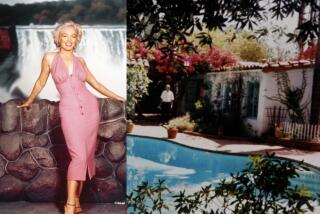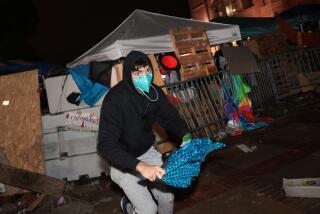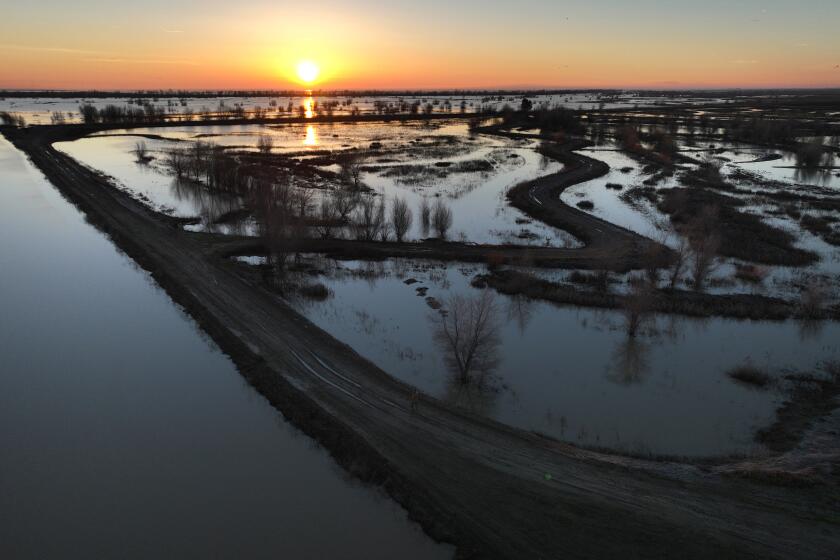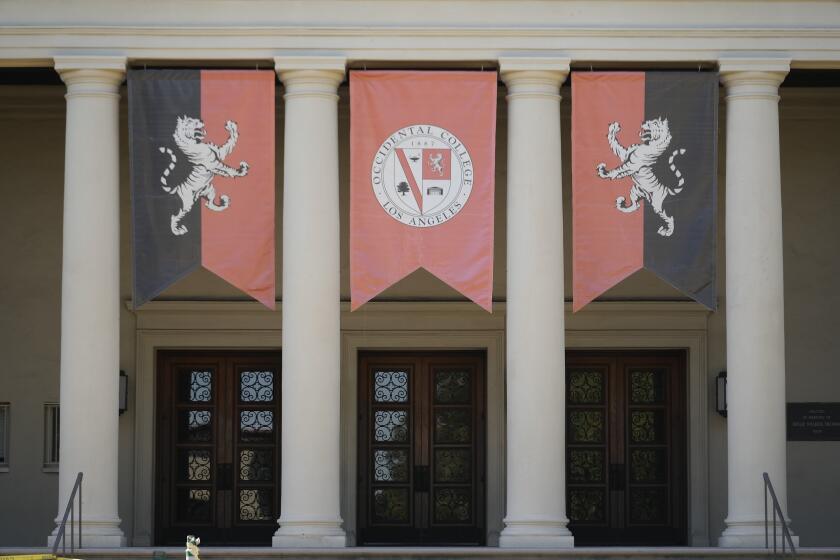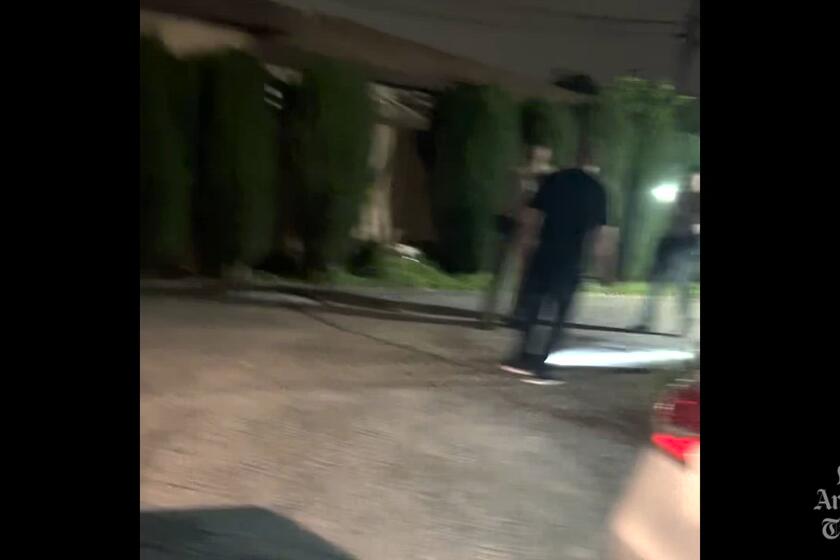‘Go East, Young Man’ Was the Best Advice in His Case
It is the conceit of Californians, indeed, of Sun Belt Americans generally, that everyone in the world wants to live there. I mean, what’s wrong with orange blossoms, year-round rose gardens, Pacific sunsets and movie stars in your soup, so to speak?
Well, the Chamber of Commerce better not come sniffing around Fredric Michael Lynn, the baseball player. So far as Fred Lynn is concerned, California is a nice place to live--but he wouldn’t want to work there.
Fred likes places where you sweat in the summer and shiver in the winter for his work place. He wants a spot where it’s 90 degrees one minute and freezing the next as a cold front from Canada or a nor’easter from the Atlantic comes through.
He finds it hard to concentrate any place where it’s always 85-90 and the surf’s up and the sky is blue. It’s no place to have to hit a curveball for a living. He doesn’t like it where they say “Nice try, baby” if he bloops a ground ball to the outfield. He likes it better when they say “Whatsa matter, Lynn, out late again last night? My grandmother could play center field better than you!”
He wants people who stay clear to the ninth inning. He likes fans who work in hard hats for a living, not lizard boots. He gets the feeling the game in California is unreal, as if a director were going to come on any minute and yell “Cut!” and send the pitcher back to makeup.
It isn’t as if Fred Lynn came from a long line of textile workers or spent his boyhood on the craggy rocks of New England or the mean streets of New York. He grew up within a few miles of the beach at Santa Monica. He was one of that gaggle of super-athletes that crowd the halls and playing fields of the University of Southern California. Where you wore shorts to class, water came in a bottle, snow was something that fell 10,000 feet up and 90 miles east and every day was July.
Most people would kill for that. Ben Hogan once said that anybody who didn’t live in California was a victim of circumstances. Stan Musial once told a writer he thought that moving to California would add years to Willie Mays’ playing life.
But a ballplayer doesn’t live by palm trees and bright sunlight and a high ozone content, he lives by the book--stats.
When Fred Lynn first moved to Boston, he didn’t know what sleet was. And he thought baseball fans hated him. He didn’t realize their bared-fang approach was a form of love. They were insulating themselves against failure on the part of their loved ones on the field by abusing them.
It was a crucible for a young player brought up in the genteel confines of Bovard Field, but Fred Lynn discovered a remarkable thing: It brought out the best in him.
Fred Lynn is probably one of the most enigmatic players in the game today. He is the most natural extra-base hitter you are likely to see. Almost half his hits historically have been for extra bases. He is not powerful physically, but he’s blessed with exquisite timing and a gorgeous fluid swing you could set to music. He is capable of the most incandescent bursts of high-powered baseball you would want to look at. He once batted .611, no less, in a playoff series, with 11 hits in the five games, one of them a home run and two of them doubles. He seldom does a thing wrong in the outfield.
He had Superstar written all over him and in Boston he was one. He won Rookie-of-the-Year and MVP in the same season, the only player ever to do that. He hit .331, .314, .333 and .301 in Boston, where the air was heavy and the fences (right field) distant. But he hankered to get out.
He thought he wanted to get back where the skies were not cloudy all day, where seldom was heard a discouraging word (Fenway Park had hardly any other kind). But when he got there, to the antiseptic splendor of Anaheim, a funny thing happened to Fredric M. Lynn: He missed the abuse. He missed not having to wear a scarf to the ballpark some nights. He almost got bored. He certainly got distracted.
He also batted .219.
Now, this, to be sure, was an aberration. But it was symptomatic of the uneasiness which playing in the hothouse atmosphere brought on. Fred began to yearn for the hairy-chested baseball of the East, where the customers threw things and the ballparks and the game were old and noisy.
Once there was a worker who came to California during the war to weld ships but when the war was over he piled his family into the car and headed back east to his roots. As he pulled out of a gas station on the border, the attendants spotted a sign he had strung across the back of the family jalopy. “Goodby California and your geedee red geraniums!” it read.
Fred Lynn didn’t exactly say goodby to California and its red geraniums. He still winters there. As a work place, he passes. He played out his option with the Angels eagerly, passed up a chance to go to San Diego to sign instead a multi-year contract with, of all people, the Baltimore Orioles.
Now, Baltimore is not exactly thought of as your French Riviera or even Italian Lido, but ballplayers are funny. If they can go 2-for-4, Hell’s hottest coke heap looks like Key West to them.
Fred Lynn is back around .300, back here where the game wears a hard hat and the spectators swear at you, not by you.
The other night, he drilled a game-winning double past the third baseman in the bottom of the eighth. The next day, he hit his 21st home run of the season.
It may not look like much to you and me but to Fred Lynn “Balmer” makes Tahiti look like a used car lot. You can have your home in the West. He wants a place where seldom is heard an encouraging word and the skies are quite cloudy all day. He wants a place where the base hits roam. You can have the buffalo.
More to Read
Start your day right
Sign up for Essential California for news, features and recommendations from the L.A. Times and beyond in your inbox six days a week.
You may occasionally receive promotional content from the Los Angeles Times.

